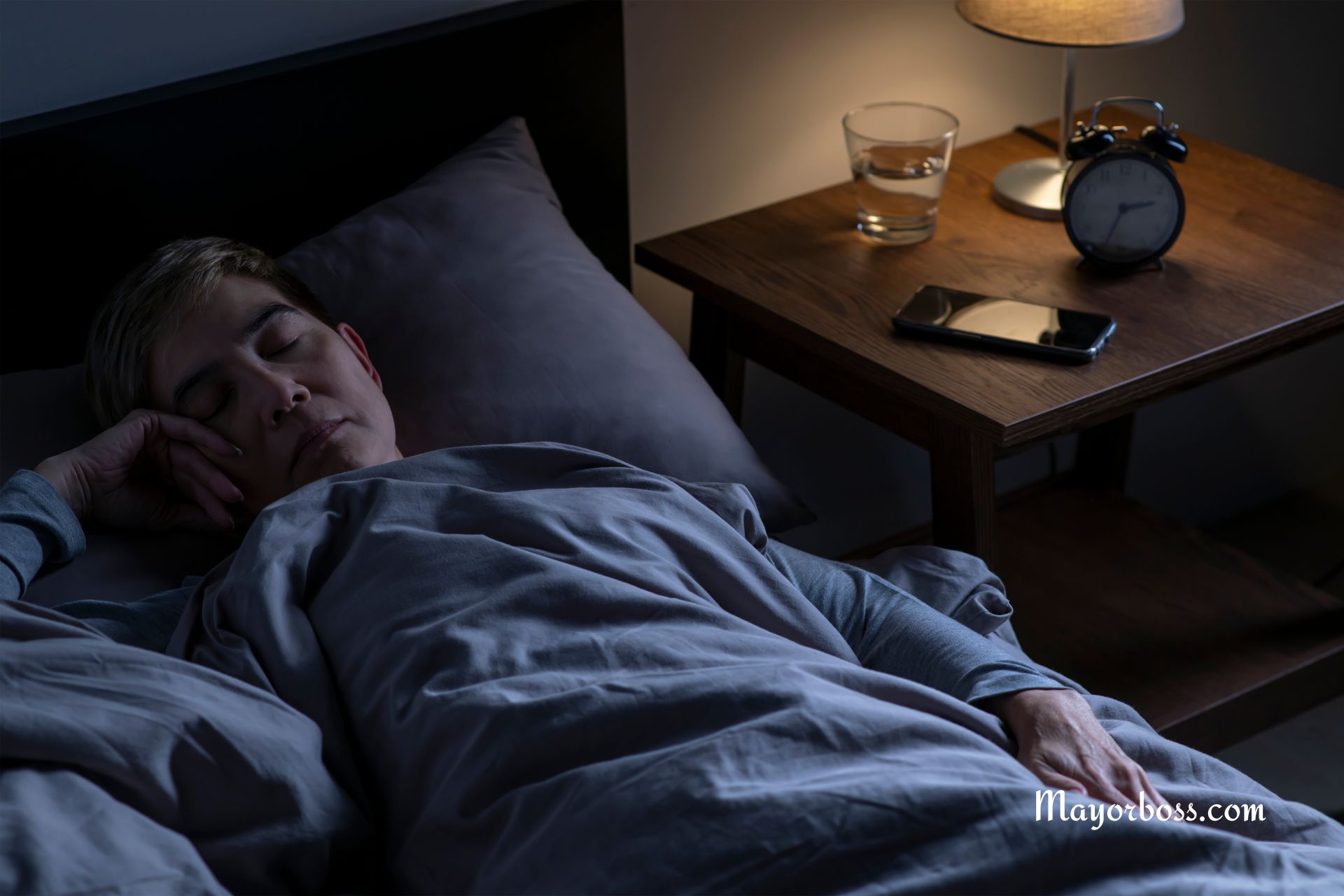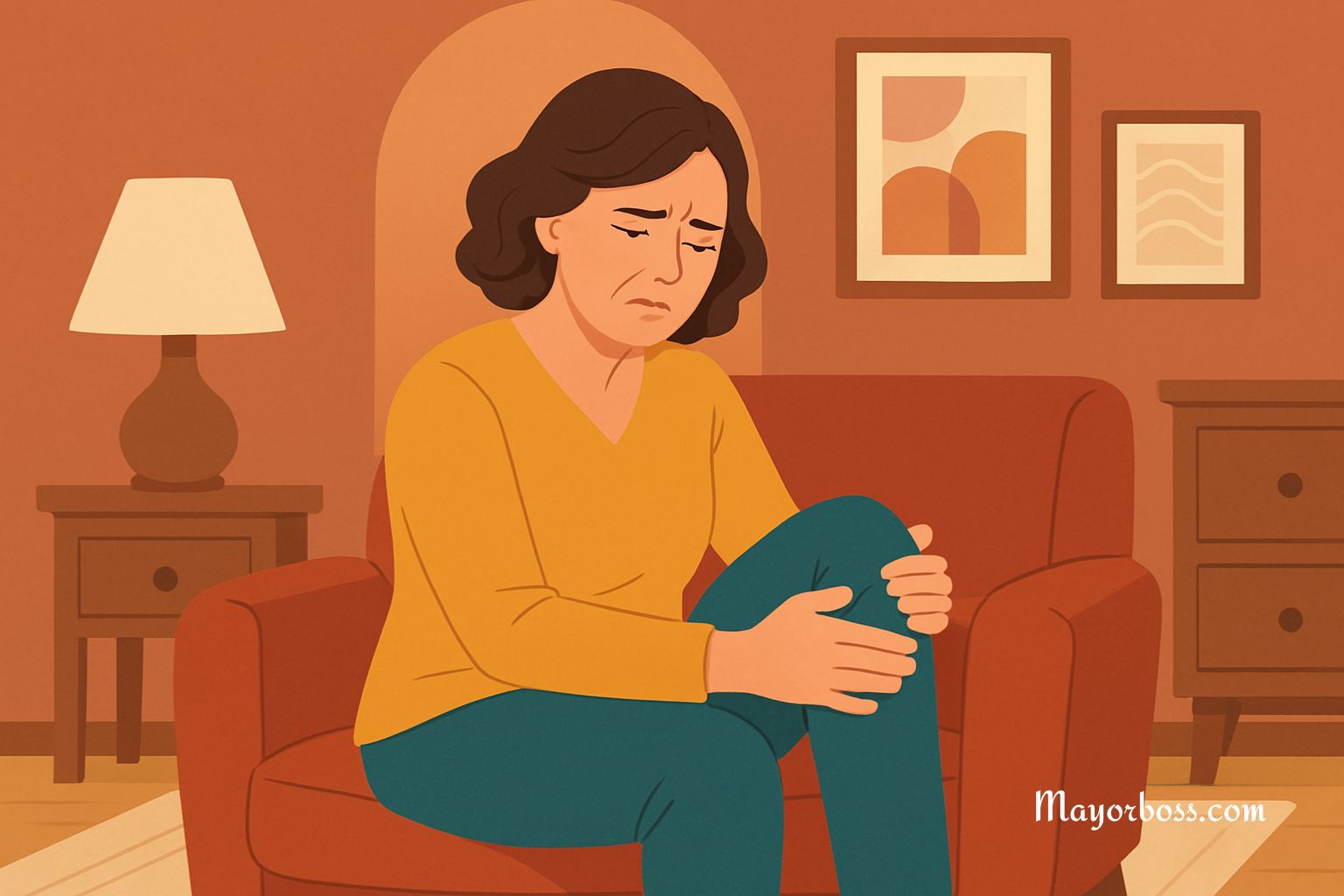This Is What It Means When Your Body Suddenly Jerks While You Are Falling Asleep
Have you ever been about to fall asleep when suddenly—bam! Your whole body jerks and it wakes you up? If this has happened to you, don’t worry, you’re not alone. This is called a hypnic jerk or sleep start, and it’s actually very common. Here are why these jerks happen and what they mean for your body and health.

What Are Hypnic Jerks?
Hypnic jerks are quick, involuntary muscle twitches that happen when you’re just starting to fall asleep. Usually, these jolts are sudden and sometimes come with a feeling of falling. Some people even dream that they are tripping or stumbling right before the jerk wakes them up. Scientists think hypnic jerks happen during the transition between being awake and falling asleep when your muscles are relaxing, but your brain is still pretty active.
Why Do Hypnic Jerks Happen?
Scientists think that hypnic jerks are just a natural part of falling asleep. They happen when you are transitioning from being awake to non-REM sleep—the stage when your body starts to relax, but your brain might not be totally ready to let go. During this time, your nervous system is in an in-between state, which can cause these sudden twitches.
Some researchers believe hypnic jerks might go back to the days of our early ancestors. They think that when humans used to sleep in trees or high places, these twitches helped them avoid falling. Now, we sleep in beds, so this reaction isn’t needed, but it still happens as a leftover reflex.
Common Reasons for Hypnic Jerks
There are a few common things that can make hypnic jerks more likely:
Stress and Anxiety
Stress and anxiety can make hypnic jerks happen more often. If your mind is full of worries or tension, it takes longer for your body to relax, which means you’re more likely to experience jerky movements as you fall asleep.
Caffeine and Other Stimulants Can Keep Your Brain Too Active
Caffeine and other stimulants are known for messing with sleep. Drinking coffee or other caffeinated drinks close to bedtime can keep your brain too alert, making it harder to fall into a deep sleep, which could trigger hypnic jerks.
Being Very Tired
When your body is very tired, it can be hard for your muscles to fully relax, which makes hypnic jerks more likely. If you’ve had a tough, busy day, you might notice these jerks happening more as you try to drift off.
Irregular Sleep Schedules
If you don’t have a consistent sleep schedule, it can also make hypnic jerks happen more often. When you go to bed and wake up at different times, it can throw off your body’s natural rhythm, making it harder for you to fall asleep smoothly.
Are Hypnic Jerks Dangerous?
The good news is that hypnic jerks are almost always harmless. They can be annoying or startling, but they don’t mean anything is wrong with your health. They’re just a normal part of how our bodies fall asleep. However, if hypnic jerks are happening a lot and making it hard for you to sleep, it might be a good idea to talk to your doctor. Sometimes frequent jerks can be related to sleep disorders or high anxiety.
How to Reduce Hypnic Jerks
Even though hypnic jerks are not harmful, there are some things you can do to reduce how often they happen:
Create a Bedtime Routine to Help Your Body Relax
One of the best ways to reduce hypnic jerks is to make a calming bedtime routine. Taking a warm bath, listening to relaxing music, or doing some gentle stretches can help your body relax slowly, which might make those sudden jerks less likely.
Avoid Stimulants in the Evening to Help Your Brain Slow Down
Try to avoid caffeine, nicotine, and other stimulants for at least six hours before bedtime. This can help your body enter sleep more easily without those sudden twitches. You can try herbal teas, like chamomile, as a relaxing alternative to coffee.
Do Deep Breathing Exercises to Lower Stress Before Bed
Deep breathing exercises can help you lower stress and tension, making it easier for your body to relax. Breathe in slowly through your nose, hold for a moment, and then exhale through your mouth. Doing this a few times can help tell your brain that it’s time to relax.
Stick to a Consistent Sleep Schedule to Help Your Body Get into a Routine
Keeping a consistent sleep schedule helps your body know when it’s time to rest, which can make hypnic jerks happen less often. Going to bed and waking up at the same time every day helps your internal clock stay steady, making it easier for you to fall asleep smoothly.
When to See a Doctor About Hypnic Jerks
As we mentioned before, hypnic jerks are usually nothing to worry about. But if you notice that they are happening a lot, getting stronger, or if they are keeping you from getting enough sleep, it might be a good idea to see your doctor. Sometimes frequent sleep disruptions could be a sign of a bigger problem, like restless leg syndrome or sleep apnea.
If you’re not sure if your hypnic jerks are part of a bigger issue, keep track of how often they happen and any other symptoms. This information can help your doctor decide if more tests or treatments are needed.
Final Thoughts on Hypnic Jerks
Hypnic jerks are one of those weird things our bodies do that most people experience at some point. They are completely normal, and while they might be a little scary or annoying, they are usually harmless. If they are happening a lot, changing some of your bedtime habits might help make them less frequent.






